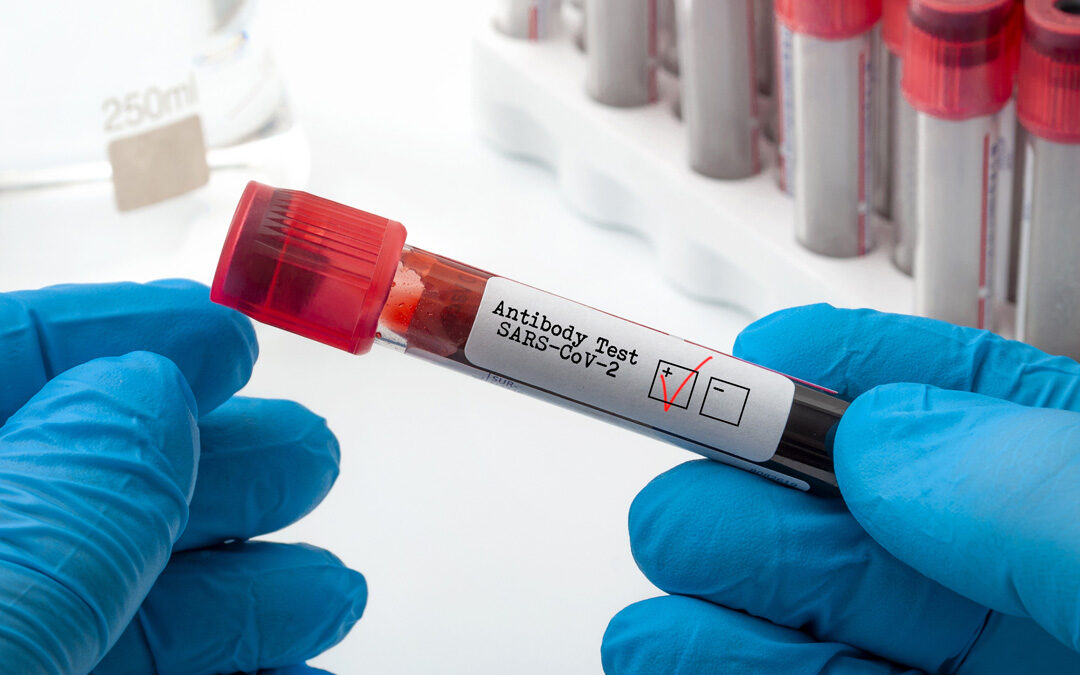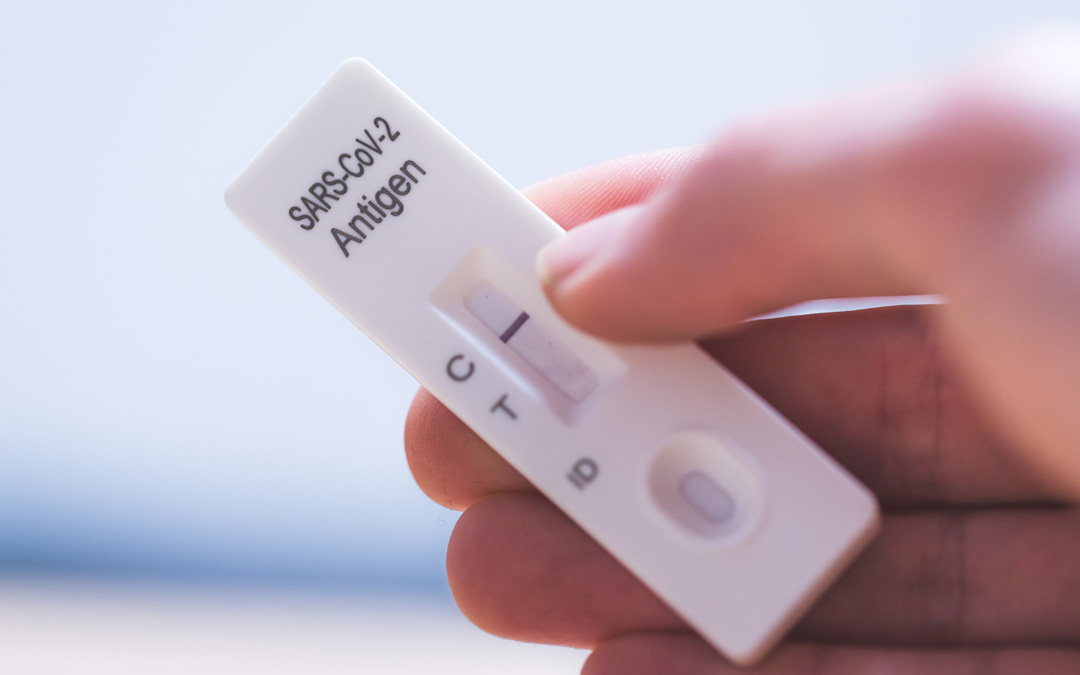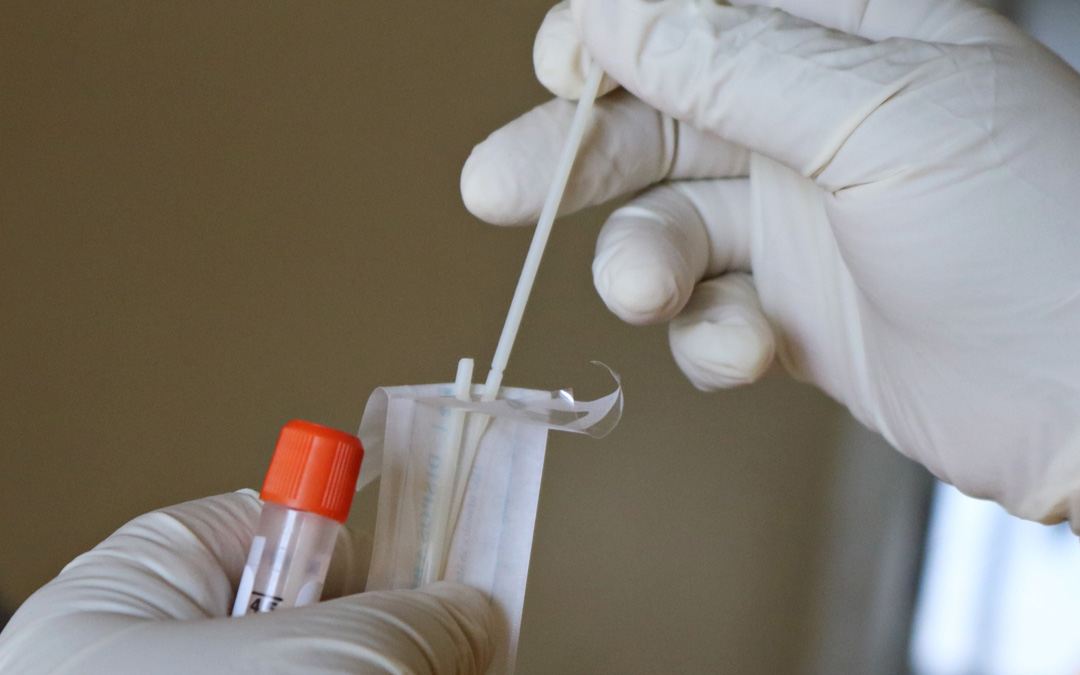We have previously discussed the differences between RT-PCR testing and antigen testing for the detection of COVID-19 infection. Both of these techniques reveal active infection; in other words, they detect the presence of the virus itself in the human body: RT-PCR testing detects the genetic material of the virus and antigen testing detects the protein structural material of the virus. In distinction to these, antibody testing does not detect the virus itself but rather the body’s response to the virus or the vaccine.
Similar to antigen testing, antibody testing is founded on the antigen/antibody binding concept, which we’ve discussed in our previous blog. In brief, the immune systems of humans and many other animals are capable of producing antibodies – a particular type of protein – that are shaped just perfectly to bind tightly to specific proteins on the virus, which in this context are referred to as antigens. Antigen/antibody binding is critical for the immune system to recognize and clear viral infection and is also useful in the laboratory.
Antibody testing is simply the exact opposite of antigen testing in the laboratory. Artificially synthesized antigens (virus proteins) are used to detect the presence of antibodies (produced by the immune system) in a blood sample to determine if the COVID-19 virus (known as SARS-CoV-2) is recognized. The antibodies detected in the most commonly used tests bind the virus’ Spike protein, which is on the virus’s shell, and the virus’ Nucleocapsid protein, which is inside the virus and functions to protect the virus’ genetic material.
Using tests to detect both of these types of antibodies individually can be useful to determine whether a person has COVID-19 antibodies in general and whether those antibodies are present because of prior COVID-19 infection or because of vaccination. All currently approved vaccines stimulate the body to produce antibodies to the Spike protein. Anyone who has been vaccinated but never infected will have antibodies that recognize the Spike protein only — not the Nucleocapsid protein or any of the other viral proteins. On the other hand, the immune systems of those infected will produce antibodies that recognize all of the viral proteins to varying degrees, including Spike and Nucleocapsid. Therefore, if a laboratory test shows the presence of antibodies only for the Spike protein and not for the Nucleocapsid, the person has most likely received a vaccine but has never been infected. In contrast, the presence of Nucleocapsid antibodies indicates a prior infection.
In addition, some laboratory antibody tests can determine whether the blood contains antibodies produced early in infection — known as IgM antibodies — instead of antibodies produced later in infection, known as IgG antibodies. IgM antibodies tend to stop being produced by the body after a while and usually are not present at detectable levels several weeks or months after infection or vaccination. In contrast, IgG antibodies tend to persist much longer. However, recent studies have shown that even IgG antibodies become reduced in concentration eventually and may lose their effectiveness at preventing infection, at least in some people; thus, the well-publicized interest in booster shots in recent months.
To learn more about ADx Health’s COVID testing program, visit our COVID page.




